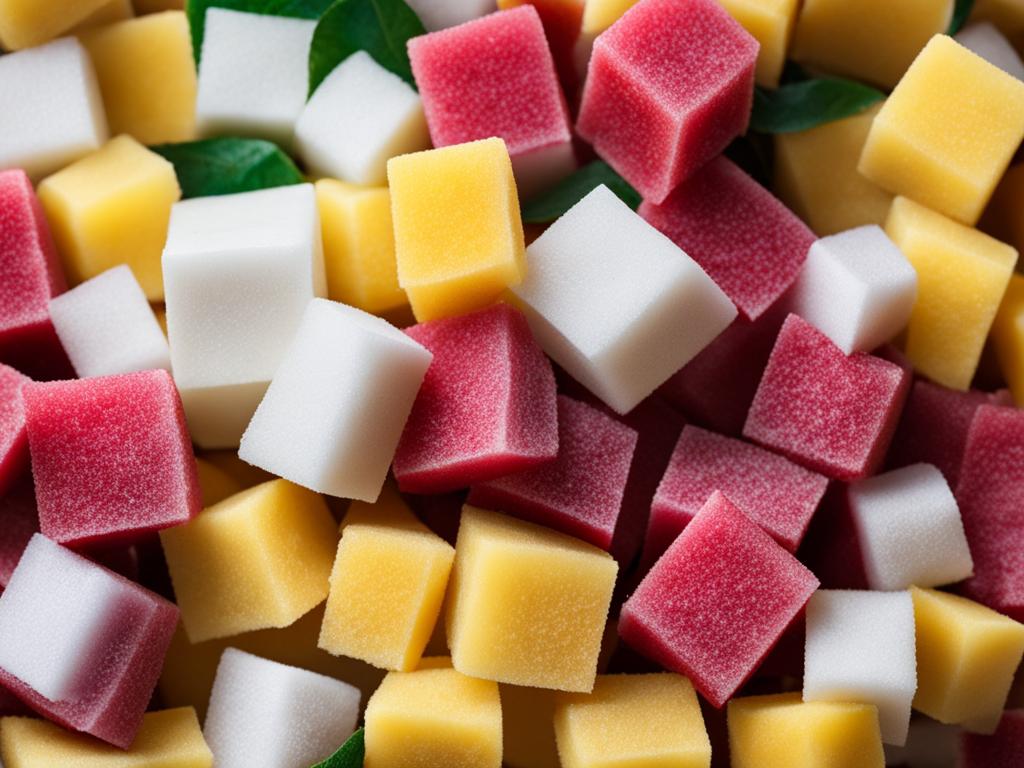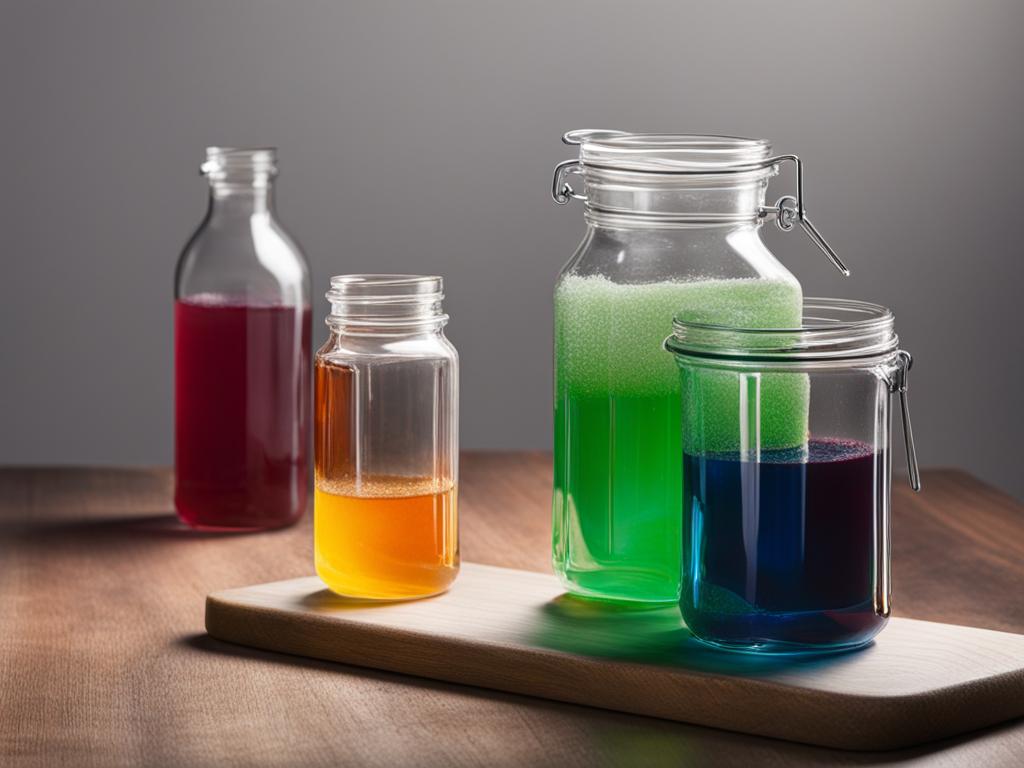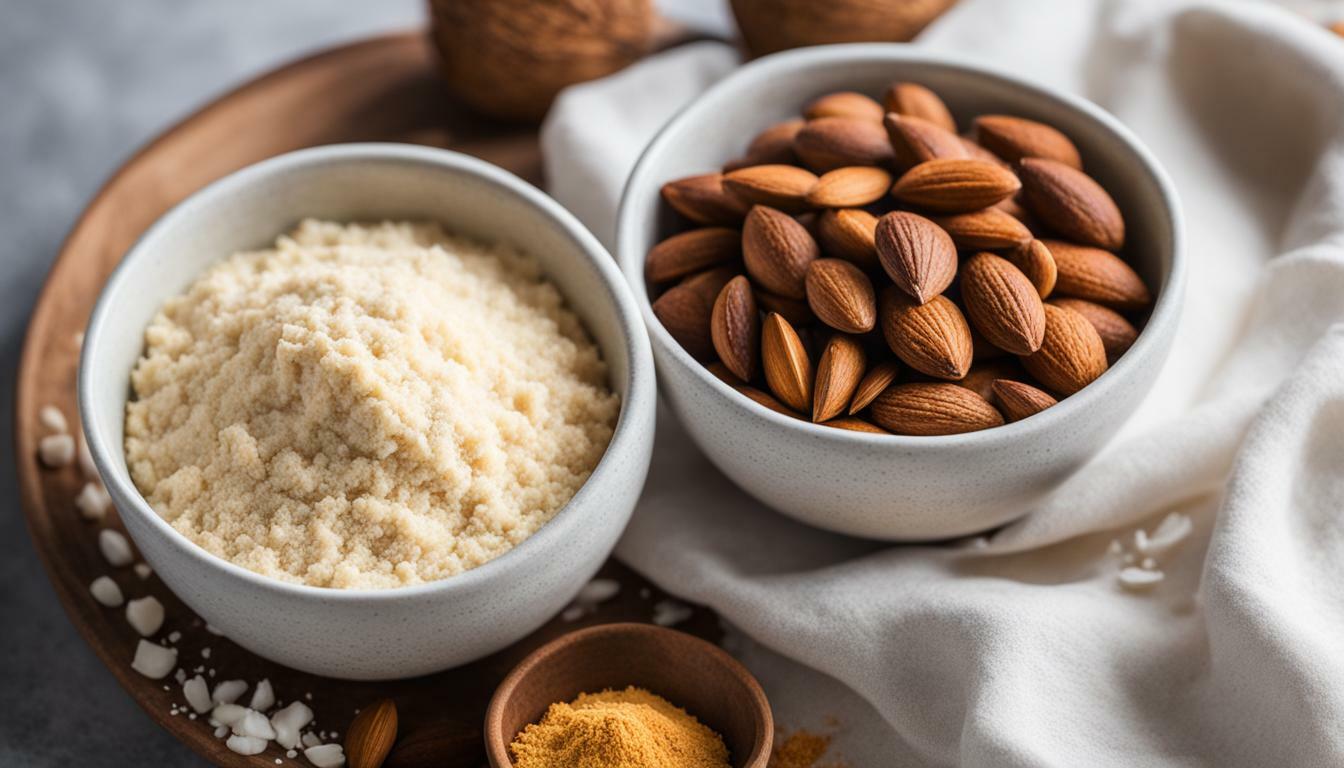When it comes to sugar, there are two main sources – cane sugar and beet sugar. While they may seem similar, there are distinct differences in their processing, taste, and nutritional composition. Understanding these differences can help you make informed choices about the type of sugar you use. Let’s take a closer look at the key characteristics that set cane sugar and beet sugar apart.
Cane sugar and beet sugar, despite being chemically identical, go through different processing methods. Cane sugar, derived from sugarcane, requires the use of bone char to achieve a pure white color. On the other hand, beet sugar does not need this step, making it a preferred choice for vegans and vegetarians.
Another difference lies in the taste. Some bakers and chefs claim that brown sugars made from sugarcane have a distinct flavor compared to those made from sugar beets. While the industry maintains they are identical, the moisture content in each type of sugar may affect the texture and taste of baked goods.
In terms of nutrition, both cane sugar and beet sugar have similar compositions, as both are pure sucrose. However, consuming excessive amounts of either can lead to weight gain and the development of chronic health conditions.
Key Takeaways:
- Cane sugar and beet sugar are chemically identical but differ in processing methods.
- Sugarcane-based cane sugar requires the use of bone char, making beet sugar a preferred choice for vegans and vegetarians.
- Some bakers and chefs claim that brown sugars made from sugarcane have a distinct flavor compared to those made from sugar beets.
- Both cane sugar and beet sugar should be consumed in moderation due to their impact on health.
- The choice between cane sugar and beet sugar ultimately comes down to personal preference and dietary needs.
Differences in Production
When it comes to the production of cane sugar and beet sugar, there are notable differences in the processes involved. Cane sugar is made by extracting the juice from sugarcane, which is then purified and crystallized into granulated sugar. During the production of cane sugar, bone char is often used to bleach and filter the sugar, resulting in a pure white color. On the other hand, beet sugar is produced by slicing sugar beets to extract the sugar juice, which is then purified and crystallized. Unlike cane sugar, the use of bone char is not required in the production of beet sugar.
The introduction of bone char in the production process of cane sugar makes it a topic of concern for some individuals, particularly vegans and vegetarians who prefer to avoid animal products. By choosing beet sugar, these individuals can ensure that their sugar consumption aligns with their dietary preferences. Additionally, the absence of bone char in beet sugar production may also appeal to those who are looking to reduce their animal product intake for various reasons.
To summarize, the differences in production between cane sugar and beet sugar lie in the use of bone char and the process of extracting and crystallizing the sugar. While cane sugar undergoes a step involving bone char to achieve a white color, beet sugar does not require this step. These differences make beet sugar a preferable choice for individuals seeking a more animal-friendly option.
| Production | Cane Sugar | Beet Sugar |
|---|---|---|
| Bone Char Use | Yes | No |
| Extraction Process | From sugarcane | From sugar beets |
| Crystallization | Yes | Yes |
Differences in How Cane Sugar and Beet Sugar Work in Recipes
When it comes to cooking and baking, the choice between cane sugar and beet sugar can have an impact on the taste and texture of your creations. While both types of sugar are chemically the same, there are subtle differences that can affect the final result. Let’s explore the distinctions below:
Cane Sugar vs. Beet Sugar Taste
The taste of cane sugar and beet sugar can vary slightly. Cane sugar is known for its sweeter aftertaste and fruity aroma, while beet sugar has an earthy, oxidized aroma and a burnt sugar aftertaste. The different taste profiles may influence the overall flavor of your dishes. It’s important to consider these nuances when selecting the right sugar for your recipe.
Impact on Recipes
When it comes to how they interact with other ingredients in recipes, cane sugar and beet sugar may behave differently. Cane sugar has a higher moisture content compared to beet sugar, which can affect the texture and moistness of baked goods. Some chefs and bakers find that cane sugar caramelizes more easily, resulting in a beautifully golden and uniform product. On the other hand, beet sugar can contribute to a crunchier texture and unique taste in certain recipes.
“The choice between cane sugar and beet sugar in a recipe can make a subtle but noticeable difference in the final outcome. The taste, texture, and appearance of your dishes can be influenced by the type of sugar you use.”
Ultimately, the decision to use cane sugar or beet sugar in your recipes depends on your personal preferences and desired results. It’s worth experimenting with both to see which one complements your dishes best. Remember that the quality and freshness of the sugar you use also play a significant role in the outcome of your culinary creations.
| Differences | Cane Sugar | Beet Sugar |
|---|---|---|
| Taste | Sweeter aftertaste and fruity aroma | Earthy, oxidized aroma and burnt sugar aftertaste |
| Texture | May result in a moist and uniform product | Can contribute to a crunchier texture |
| Caramelization | Caramelizes more easily | N/A |
Nutritional Composition of Cane Sugar and Beet Sugar
Both cane sugar and beet sugar have nearly identical nutritional compositions, as they are both composed of pure sucrose. Sucrose is made up of glucose and fructose, which are simple carbohydrates that provide energy but lack essential nutrients. The difference between cane sugar and beet sugar lies in their source of production, processing methods, and potential impurities.
When it comes to the macronutrient composition, both cane sugar and beet sugar are virtually identical. They contain the same amount of calories, carbohydrates, and sugars per serving. However, it’s important to note that these sugars are considered “empty calories” as they provide energy but lack essential vitamins, minerals, and fiber.
Consuming high amounts of either cane sugar or beet sugar can have negative health impacts. Excessive sugar consumption is linked to weight gain, increased risk of diabetes and heart disease, and may contribute to liver problems. Health organizations recommend limiting added sugar intake to less than 6 teaspoons per day for women and less than 9 teaspoons per day for men, regardless of whether it comes from cane sugar or beet sugar.
It is worth noting that cane sugar and beet sugar are often used interchangeably in recipes and food products. However, individuals with specific dietary needs or preferences, such as vegans or vegetarians, may choose beet sugar due to its production process that does not involve bone char. Ultimately, moderation is key when it comes to consuming any form of sugar.

Detailed Nutritional Comparison of Cane Sugar and Beet Sugar
| Nutrient | Cane Sugar (1 tsp) | Beet Sugar (1 tsp) |
|---|---|---|
| Calories | 16 | 16 |
| Carbohydrates (g) | 4 | 4 |
| Sugars (g) | 4 | 4 |
| Protein (g) | 0 | 0 |
| Fiber (g) | 0 | 0 |
| Fat (g) | 0 | 0 |
| Calcium (mg) | 0 | 0 |
| Iron (mg) | 0 | 0 |
| Potassium (mg) | 0 | 0 |
| Vitamin C (mg) | 0 | 0 |
Conclusion
After examining the differences between cane sugar and beet sugar, it is clear that while they may be chemically identical, there are notable distinctions that may influence personal preferences and dietary choices. Cane sugar is often favored by vegans and vegetarians who prefer to avoid the use of bone char in the sugar production process. On the other hand, beet sugar does not require this step, making it a more suitable option for those seeking animal-free alternatives.
In terms of taste and texture, cane sugar is known for its sweeter aftertaste and fruity aroma, while beet sugar has an earthy aroma and a burnt sugar aftertaste. These subtle variations can impact the final outcome of recipes and may be a consideration for bakers and chefs striving for a specific flavor profile or texture in their creations.
From a nutritional perspective, both cane sugar and beet sugar have similar compositions, consisting primarily of sucrose. However, it is important to consume both types of sugar in moderation, as excessive intake can contribute to weight gain and the development of chronic health conditions. Therefore, regardless of the type of sugar chosen, it is crucial to be mindful of overall sugar consumption for optimal health.
In conclusion, understanding the differences between cane sugar and beet sugar allows individuals to make informed choices based on personal preferences and dietary needs. Whether it is the processing methods, taste variations, or nutritional considerations, being aware of these distinctions empowers individuals to make conscious decisions when using sugar in their daily lives.
FAQ
What is the difference between cane sugar and beet sugar?
Cane sugar and beet sugar are chemically identical, but there are differences in processing and taste.
How are cane sugar and beet sugar produced?
Cane sugar is made from sugarcane processed with bone char, while beet sugar is made from sliced sugar beets without bone char.
Do cane sugar and beet sugar taste different in recipes?
Yes, some chefs and bakers claim that cane sugar and beet sugar can affect the taste and texture of baked goods differently.
What is the nutritional composition of cane sugar and beet sugar?
Both are composed of pure sucrose and have similar nutritional compositions.
Are there any health impacts of consuming cane sugar and beet sugar?
Consuming high amounts of either type of sugar can contribute to weight gain and the development of chronic conditions such as diabetes and heart disease.



